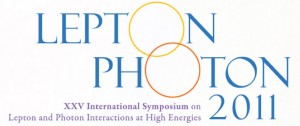Summer is a season for big international conferences for high-energy particle physics. Communication tools are highly developed today and any news can spread around the world within a few minutes. Nevertheless, summer conferences are special. Each experimental group concentrates a great deal of effort to prepare the latest, hottest results for these conferences, and the community also looks forward to new announcements. This year the world is waiting for news from Large Hadron Collider (LHC) experiments at CERN, Switzerland, which are very rapidly collecting data at 7 teraelectronvolts (TeV), the highest collision energies ever made. Also, Tevatron experiments are refreshing their analyses of their accumulated data.

Scientists will gather at the 2011 International Workshop on Future Linear Colliders in Granada, Spain, to discuss possible directions for the International Linear Collider project and the Compact Linear Collider study.
The International Linear Collider community is keen about what will be announced in particular since these experiments may provide a clear guide for the future plans of the ILC. It is said that the energy range of the future lepton collider can be set by looking at LHC results. A surprise may come from Tevatron, too. Detector activity after the completion of the detailed baseline design (DBD) will also be affected by the results of the experiments. For instance, if hint of a possible Higgs particle is found in the low-mass range, as is predicted by comprehensive electroweak fits to the existing data, we can hope the motivation for the ILC will be enhanced. Then we will have to complete the detector R&D for each component very soon and proceed towards engineering studies. There is a strong hope that by 2012 we shall know whether such a case is real. If things deviate from this expectation, we need to think seriously about which way to go. There are different possibilities, and detailed studies will be needed to come to the correct provision that leads to the key physics. Cooperation with theorists will be very important for such an investigation. We expect the newly formed group, which prepares a chapter of the DBD on the physics prospect of the ILC, will scrutinise many of the possible cases. The group will carefully watch what is presented this summer and meet in Granada, Spain, for the first discussions.

The ILC Steering Committee will meet in Mumbai, India, at the Lepton Photon 2011 conference to move forward with plans on the post-2012 scheme to promote the ILC project.
During the Lepton Photon Symposium to be held in Mumbai, India, in August, there will also be an important meeting of the ILC Steering Committee (ILCSC). We expect that at this meeting further discussions will be held about the post-2012 scheme to promote the ILC project. When there was a call for comments last autumn on the white paper on the Comprehensive Project Design Guidance by ILCSC, the community responded through different channels. Following the discussions during the previous meeting in February, ILCSC will advance the plan in the upcoming meeting. We should keep participating in such discussions as we did last autumn by sending comments so that the new scheme will be realistic and effective. We wish to continue the remaining R&D and physics studies in the hope that the project will materialise. For these activities the new scheme is crucially important. The detector groups and theorists are putting in enormous efforts to make the DBD. My wish is that the new scheme helps encourage the community to continue similar efforts and to strive for the realisation of the project. For this to happen, we have to contribute actively in the planning, too.


Recent Comments